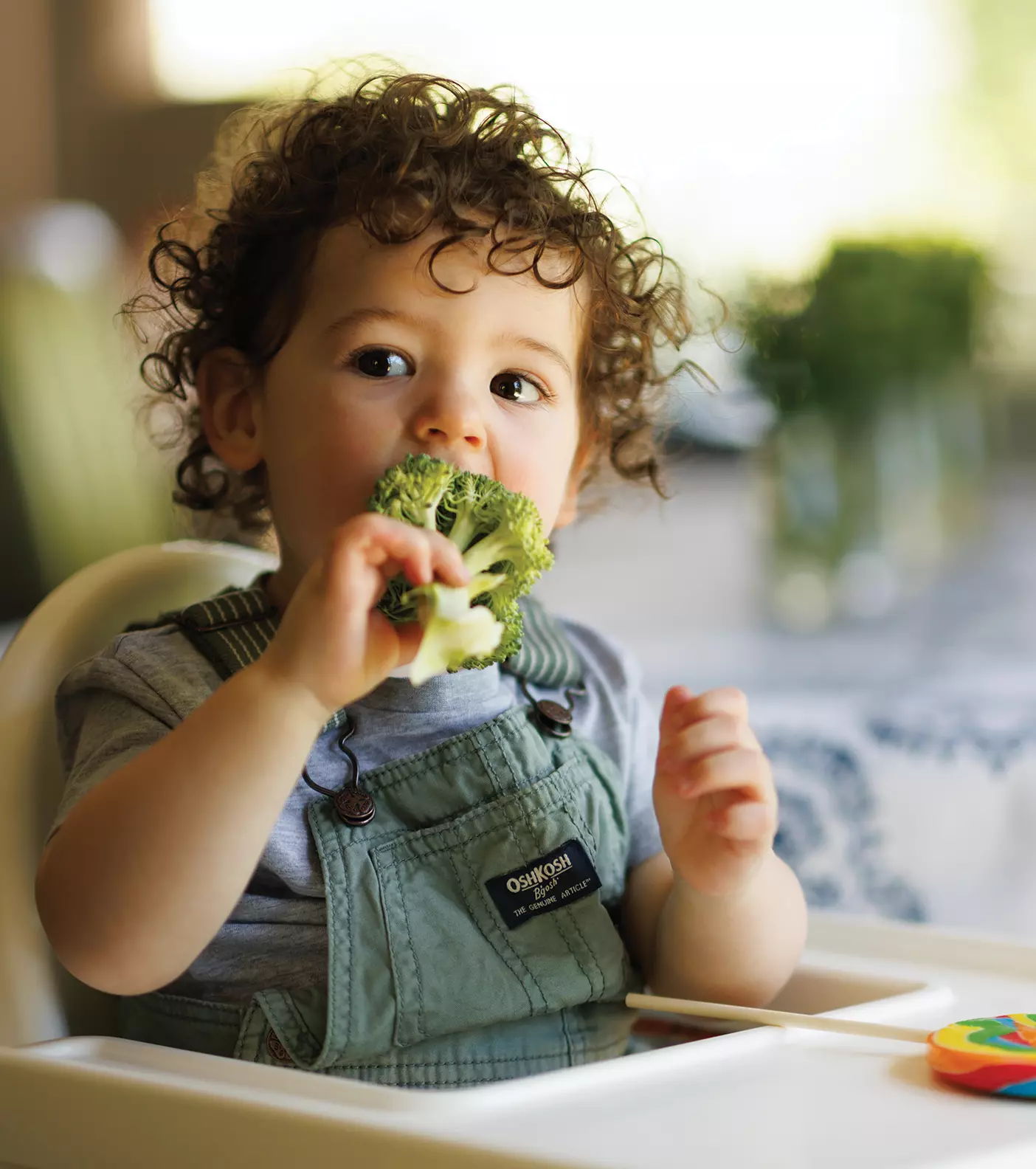Empowering children to improve their relationship with food and body image starts at home.

“One more bite.” “Eat your carrots.” “You haven’t touched your greens!” “You can have ice cream if you try some broccoli.”
Chances are that you’ve heard or expressed one of these statements recently, all to encourage children to sample and enjoy a variety of foods—and to reinforce healthy behavior at the dinner table.
“The ways parents eat and talk about food and bodies has a big impact on the way kids interact with food,” says Corinne R. Hannan (PhD ’06), associate clinical psychologist in BYU’s Counseling and Psychological Services.
Helping kids develop a healthy relationship with food can be challenging. After all, many adults themselves have an unhealthy, or at least a complicated, connection with eating. In addition, society often portrays thinness as the ideal and leads many to believe that they’re healthy only if their bodies are a certain size or shape. “If we’re able to heal or improve our own relationship with food and body image,” says Hannan, “we can set our kids up . . . for long-term wellness.”
Most parents hope to teach kids positive attitudes toward food and eating so they can grow into empowered adults, able to choose what they want to eat without nagging feelings of guilt or discouragement.
Hannan, who also teaches a class at BYU to help students improve their relationship with food, says parents play an important role in helping children establish healthy and sustainable feelings about food and combatting society’s messages about eating and body image. She recommends four points for parents to consider as they help children build a normal, flexible, and sustainable foundation of eating habits.
1. Model healthy attitudes at family meals.
“Family meals are a great way to demonstrate good approaches to food as long as you have a good relationship with food yourself,” notes Hannan. “Speak positively about food and body, cut out judgmental and moral comments about food, and talk about food as a source of energy and joy and connection.”
Include interested kids in meal planning.
2. Sleep impacts diet, according to research from Kara M. Duraccio (BS ’13, MS ’16, PhD ’19), BYU professor of clinical and developmental psychology.
She found that teens who don’t get enough sleep (less than six and a half hours per night) are more likely to consume foods high in carbs and added sugars.
“When our kids understand how they sleep and what they eat impacts the way they feel and the way they perform, they’re empowered to make their own choices by listening to their body,” says Hannan.
3. Don’t use food as a reward or punishment.
Hannan admits to telling her own children that they “could have a treat if they finish their dinner.” This approach, however, elevates the treat, making it more desirable than the meal.
“Include dessert as part of dinner, for young folks especially,” says Hannan. “The more forbidden sugar is, the more likely people are to develop a strained or all-or- nothing relationship with it.”
4. Be patient.
Helping kids have a positive relationship with food comes with time, love, and consistency.
The most important thing a parent can do is help children to feel confident in their divine worth and to trust the “divinity and wisdom of their bodies,” Hannan says.












